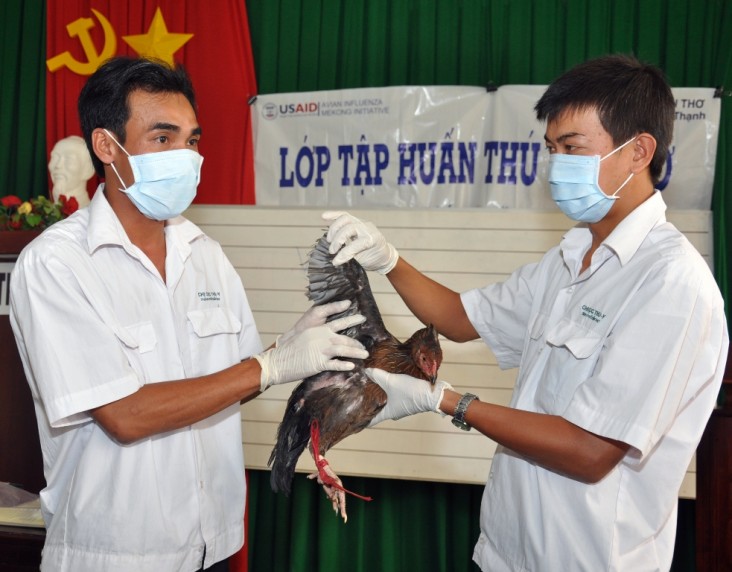
For Immediate Release
HANOI, February 10, 2014 -- The United States Agency for International Development (USAID) has awarded a new grant to the United Nations Development Programme (UNDP) to carry out a project that applies a One Health approach to reduce the threats to public health from avian and pandemic influenza (API) and other emerging infectious diseases (EIDs).
The ‘Strengthening Capacity for the Implementation of One Health in Vietnam’ project will be implemented through September 2015 in coordination with the Ministry of Agriculture and Rural Development (MARD) and the Ministry of Health (MOH). The expected outcome of the $800,000 project is to contribute to the reduction of the threats to public health from API and other emerging infectious diseases through the application of a One Health approach in Vietnam.
“This project will contribute to the development of a revised and improved coordination structure on avian and pandemic influenza and other emerging infectious diseases,” said USAID Mission Director Joakim Parker. “It will also support the reinforcement of a national policy dialogue and knowledge sharing mechanism in Vietnam as well as in regional and international networks. With it, Vietnam will build on its reputation as a fast-emerging model for dealing with pandemic threats.”
The One Health approach was adopted by the Government of Vietnam in 2010 to apply a cross-sectoral policy and coordinated approach to deal with serious health threats that arise at the animal-human-environment interface. Through this project, USAID and UNDP will promote the adoption of a One Health coordination mechanism as well as a One Health implementation plan by the Government of Vietnam in consultations with relevant stakeholders.
Vietnam is located in a relatively high-risk region for emerging infectious diseases, with the new Influenza A/H7N9 virus recently detected in humans and animals in neighboring China, underlining a potentially serious threat to public health and economic development. These types of emerging health threats underscore the call by USAID and its partners like the United Nations in Vietnam for greater coordination and collaboration between sectors and agencies to address diseases that impact on health, food security and safety, livelihoods, trade, and economic development.
The new project is in line with the USAID Country Development Cooperation Strategy for Vietnam that has recently been announced. One of USAID’s areas of programmatic focus under this five-year strategy is to strengthen Vietnam’s systems to effectively address emerging and transnational public health threats.







Comment
Make a general inquiry or suggest an improvement.